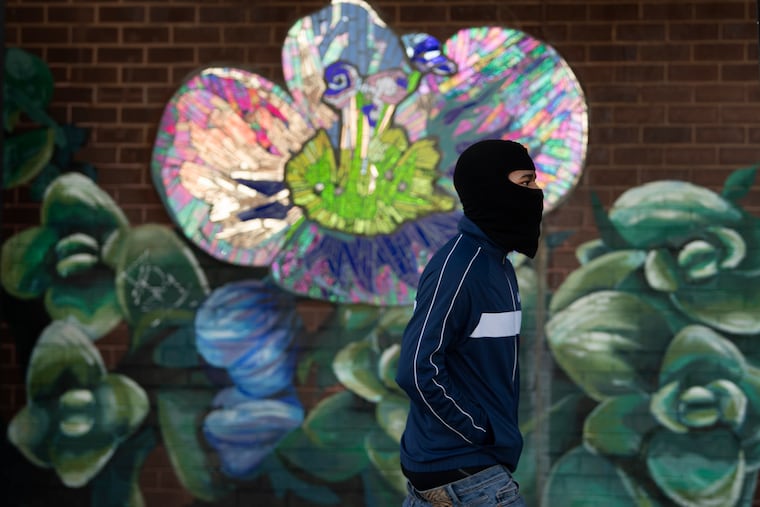Philadelphia could soon have a ski mask ban. Here’s what to know.
A ban on balaclavas could soon take effect in the city, if Mayor Jim Kenney signs the legislation passed by City Council.

As Vogue wrote earlier this year: “All the cool kids are wearing balaclavas,” also known as ski masks. The accessory can be seen on the slopes, in hip-hop videos, and on the runway. But Philadelphia City Council voted last week to ban ski masks in certain public places.
Supporters say the legislation will help curb crime in the city because people have worn them while committing crimes — making it hard for police to identify suspects. Opponents of the ban say it could violate freedom of expression rights and be misused by police to stop pedestrians.
Council passed the bill, written by Councilmember Anthony Philips, who represents parts of Northwest and Northeast Philadelphia in a 13-2 vote. It then became law Thursday without Mayor Jim Kenney’s signature.
Here’s what you need to know:
Where are ski masks banned and what is the penalty for wearing them?
The new rule allows the city to fine people $250 for wearing a ski mask or balaclava in parks, schools, day-care centers, city-owned buildings, and on public transit. The legislation defines a ski mask as a “close-fitting garment covering the whole head and face, with holes for the eyes, mouth, or nose, or any combination of the three.”
Are there exceptions?
The bill has exceptions for holiday costumes, religious purposes, work safety, theatrical productions, winter sports, and “First Amendment activities,” like protesting.
How will this law be enforced?
While the Police Department supported the bill, its leadership says that enforcing the rule could be complicated because of the exceptions.
Police spokesperson Jasmine Reilly said that the department will develop enforcement policies that will be shared with the public before enforcement begins.
When did the ban take effect?
Kenney did not sign or veto the legislation, meaning it lapsed into law without his approval following Council’s final session of the year Thursday.
In a letter to Council, Kenney expressed several concerns about the legislation, saying that the law is difficult to enforce and that there is a “high risk of selective enforcement against young people of color.” Kenney added that the “common denominator in every shooting” is a gun and said public safety would be best served by focusing efforts on prevention programs “and taking every measure to directly address the crisis of guns flooding our streets.”
Was there opposition?
A half-dozen residents, including people sporting ski masks, urged Council members to vote against the bill. One was Jetson Cruz, an activist with the Youth Art & Self-Empowerment Project, who said the legislation would give police a reason to target young people.
The ACLU and the union that represents lawyers at the Defender Association of Philadelphia also opposed the ban. The ACLU said the proposed law could infringe on free expression rights and contribute to the misuse of stop-and-frisk, a legal but controversial tactic in which police pat down a person for guns or drugs if they suspect the person committed a crime. Mayor-elect Cherelle Parker has embraced stop-and-frisk, but has said she won’t stand for misuse of the tactic by police.
Progressive Councilmember Kendra Brooks, a member of the Working Families Party, and Democratic Councilmember Jamie Gauthier voted against the bill.